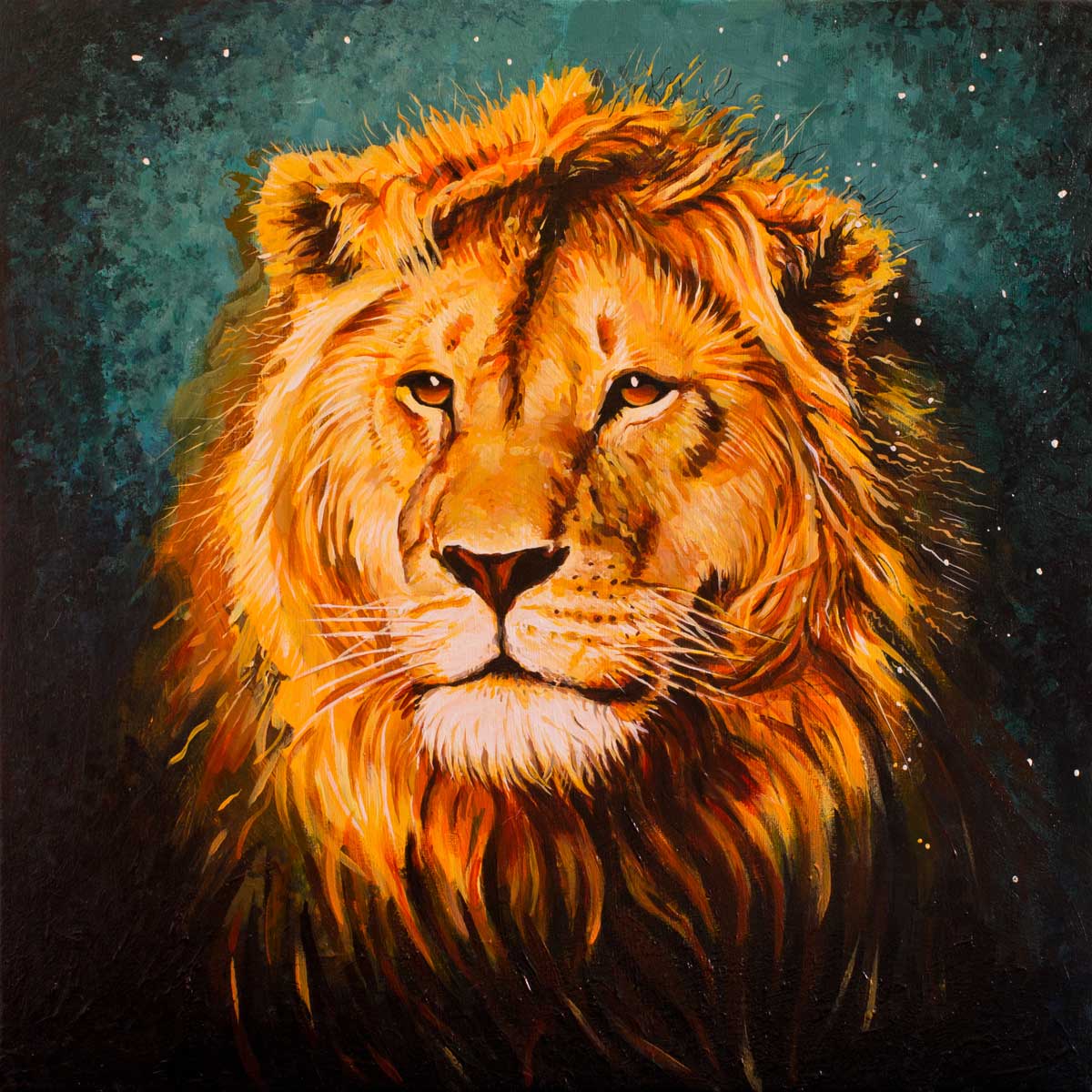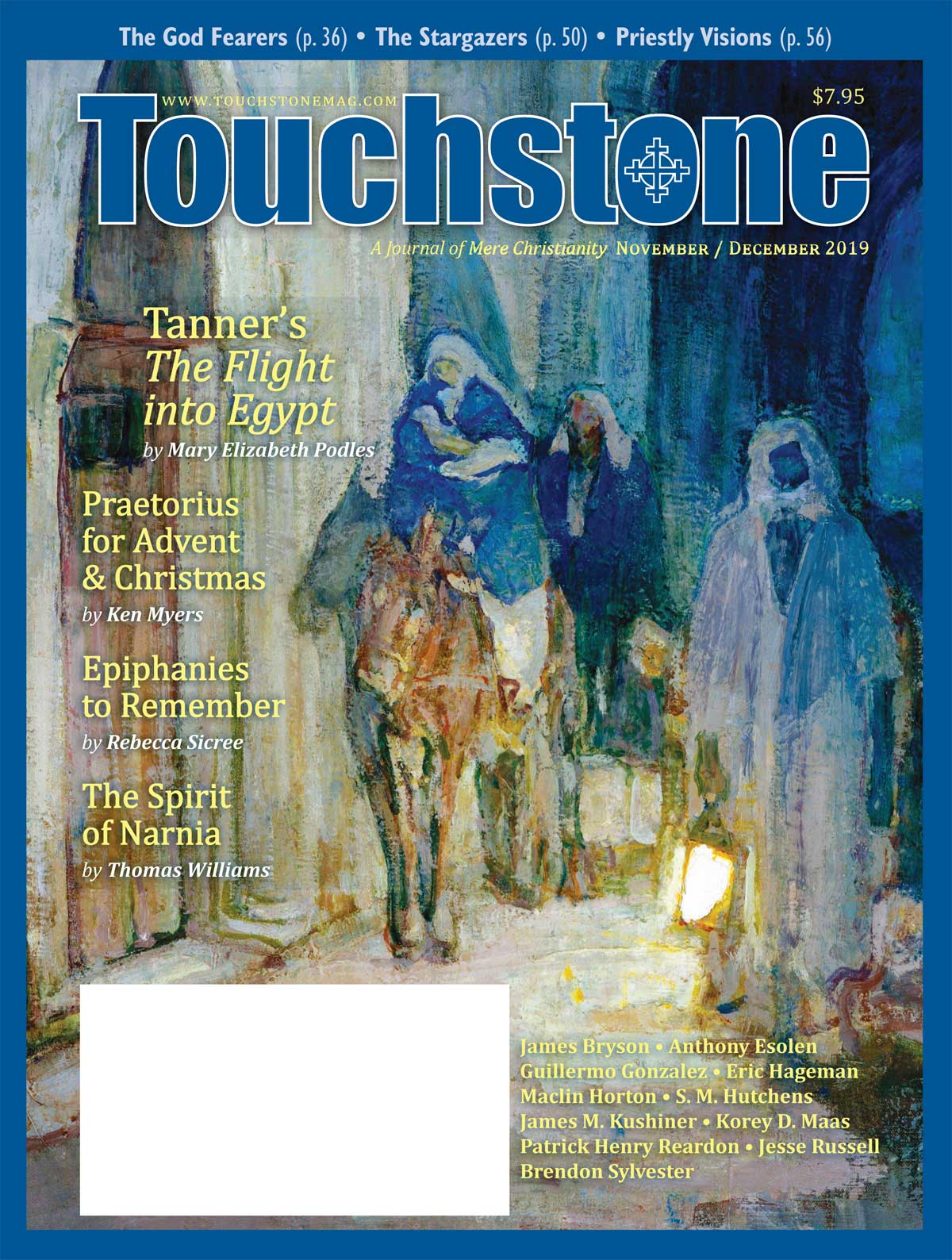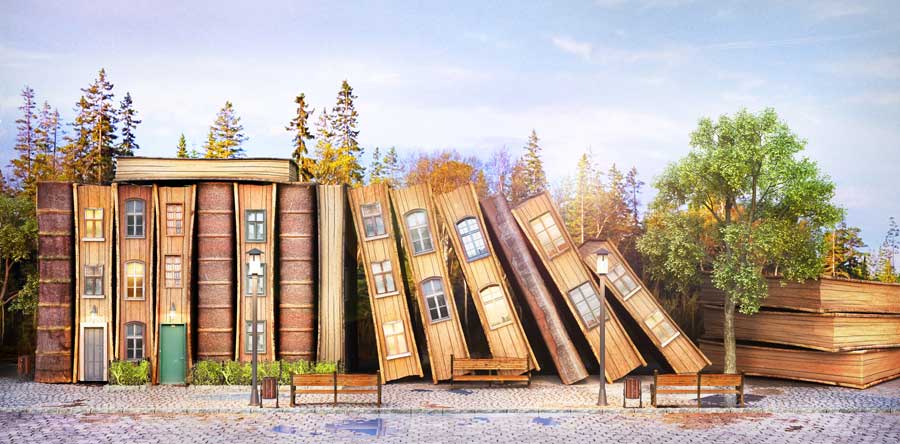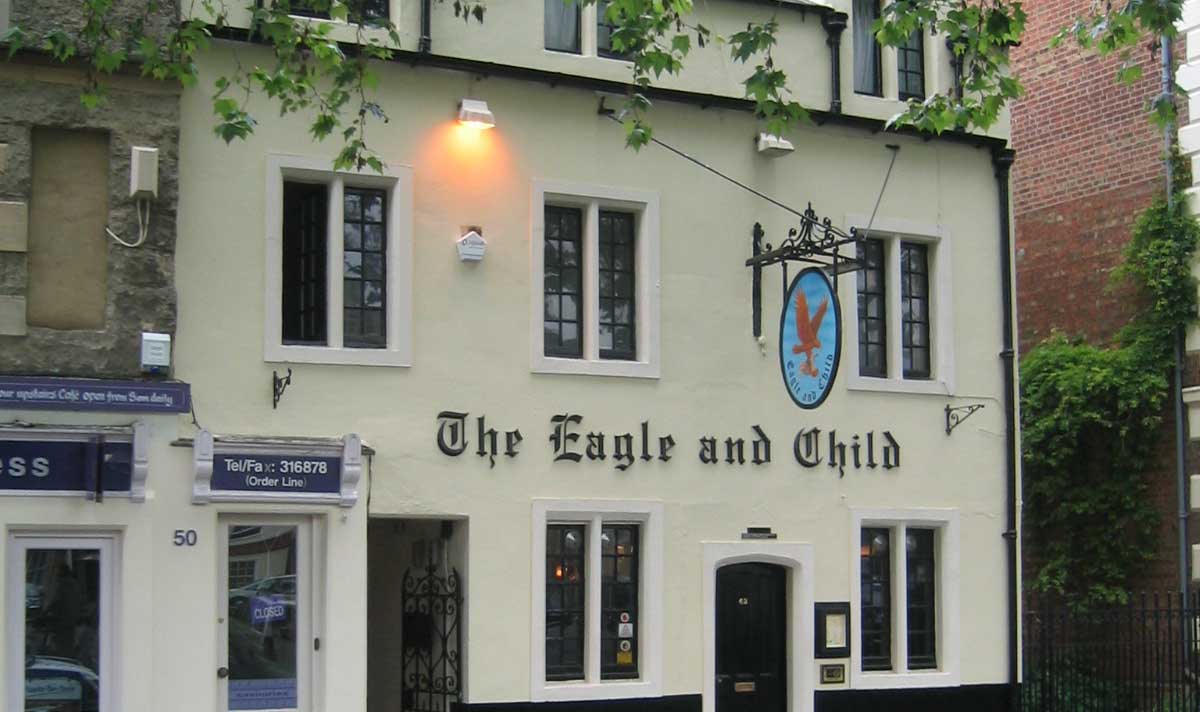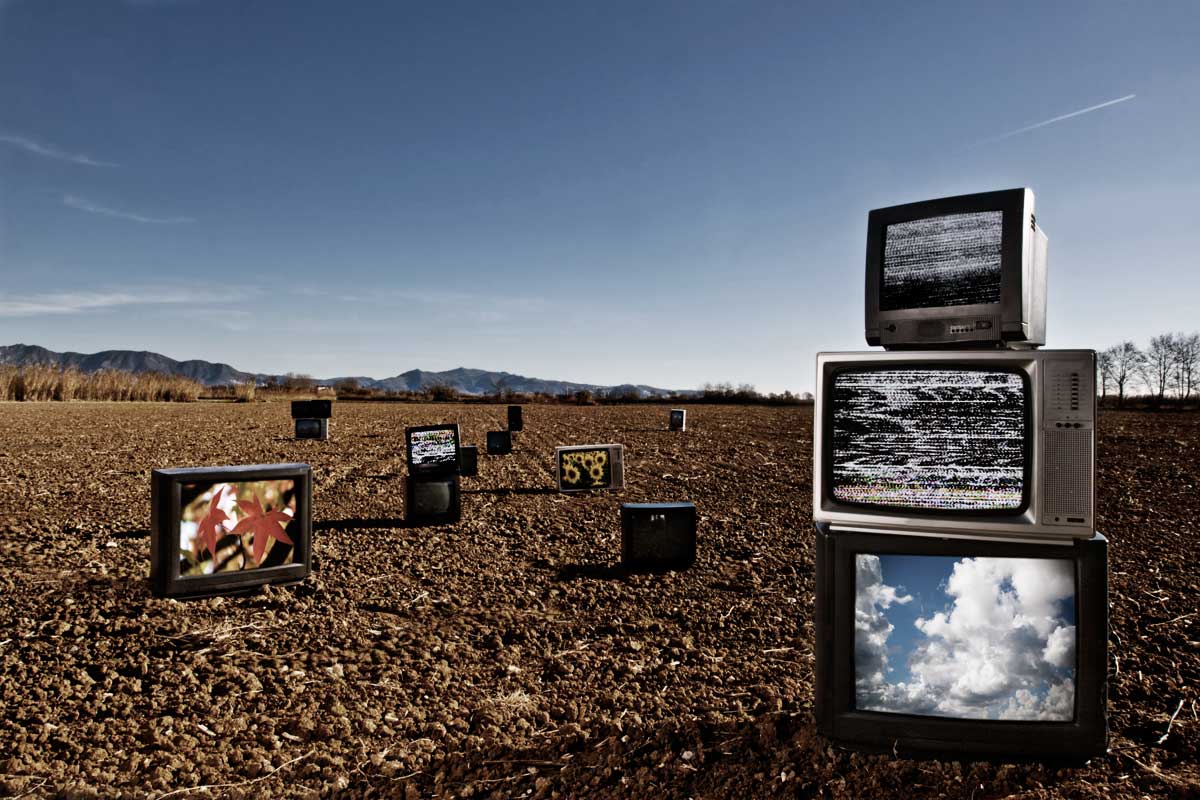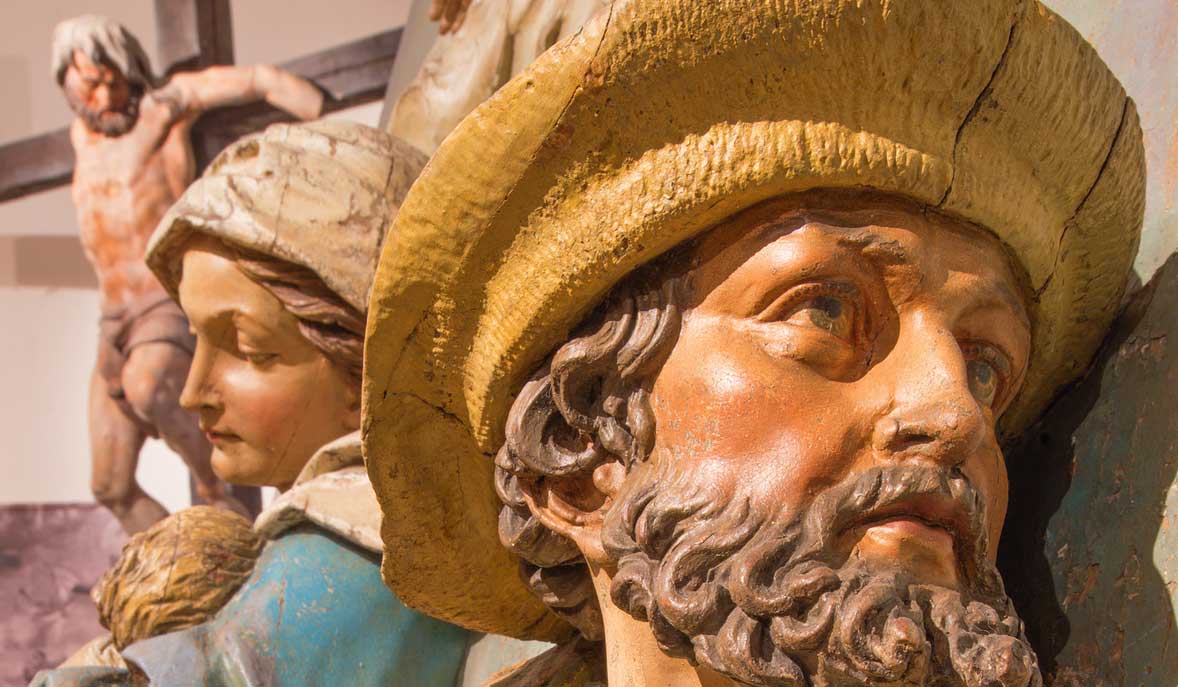Feature
The Breath of the Lion
The Holy Spirit Is Alive & Active in Narnia by Thomas Williams
"I love Narnia, but something is missing there," complained my friend. "We have God the Father in the Emperor-over-the-Sea, and we have God the Son in the great Lion Aslan. But where is the Holy Spirit? He's just not there. How could C. S. Lewis, of all writers, have overlooked so important a matter as giving his Narnia readers a complete picture of the Trinity?"
Well, my friend is mistaken. The Holy Spirit is alive and active in Narnia. In fact, the way Lewis presents him is masterfully reflective of the way he is presented in the Bible.
Perhaps you have noticed that in every large organization, whether it's a business, a service club, a church, or a school, you often find one person who remains behind the scenes, always present but never prominent. He or she may seem insignificant—never on stage, never making speeches, never asserting authority or getting in the news. But more and more you begin to realize that this person wields enormous power and influence, often equal to those who visibly run the show.
In some ways, this describes how the Bible presents the Holy Spirit. We know that all three persons of God were involved in creation, partly by the plural pronouns God uses when in Genesis 1 he says, "Let us make man in our image, in our likeness." The first chapter of John identifies Jesus, the second person of the Trinity, as one of the three. And the second verse of Genesis tells us that the Holy Spirit was also there, "hovering over the waters." The Holy Spirit was obviously involved in creation, though we are not told how. He remained silent and in the background, as he does throughout the Bible. Though evidences of his presence and enormous power often appear, as on the day of Pentecost, he remains remarkably silent throughout the Bible. Only five verses attribute speech directly to him, and even in these instances, it's unclear whether he speaks in an audible voice. His inscrutability is further demonstrated by the fact that despite being a member of the Triune Godhead, he is never identified as a distinct entity to whom we should specifically address devotion.
A presence much like the Holy Spirit is also evident in Narnia, but he is never addressed, never named, and never appears as a distinct entity or as the initiator of any communication or activity. He remains behind the scenes. The first hint of him appears in The Magician's Nephew at the creation of Narnia. When Aslan calls out the newly created pairs of beasts selected for rationality and speech, he breathes his warm breath over them and speaks to them saying, "Narnia, Narnia, Narnia, awake. Love. Think. Speak. Be walking trees. Be talking beasts. Be divine waters." Immediately the creatures respond by speaking with articulate voices. The breath of Aslan gives these chosen beings an altogether different kind of life from the rest of the beasts. His breath gives them reason, speech, free will, and the ability to respond to him purposefully, a level of response impossible for the other animals.
The Spirit as Breath
You may think that if this incident introduced the Holy Spirit in Narnia, you must have blinked. But you didn't miss anything. His presence is indicated subtly in the breath of the Lion. Aslan imparting specialness to these creatures by breathing on them echoes the intimate act of God after he formed the first man, Adam, from the dust of the ground. Genesis 2:7 tells us that God "breathed into his nostrils the breath of life; and man became a living being." The breath of God into Adam imparted life to a creature formed for the very purpose of being articulate and rational. When Aslan breathes upon these Narnian creatures, they become beings of the same type as Adam. They can reason, speak, and respond to deity in a way that the wild and brutish creatures cannot. The breath of Aslan makes the difference.
In the Bible the words for wind or breath (the Hebrew ruach and the Greek pneuma) are consistently translated "Spirit." Thus, wind and breath often signify the activity of God's Holy Spirit.
Perhaps the closest parallel between the breath of the Lion and the imparting of the Holy Spirit in the New Testament occurs when Jesus, after his Resurrection, appears to the disciples in Jerusalem, where, we are told, "He breathed on them, and said to them, 'Receive the Holy Spirit'" (John 20:22). Then he informs them that they are now empowered to be agents of God, doing his work on earth. This is the pattern that Lewis follows in Narnia. When Aslan breathes on one of his creatures, that creature is empowered by the Spirit to perform as an agent of deity, just as were Jesus' disciples.
The Spirit as Fire
Another biblical image that indicates the activity of the Holy Spirit is fire. God spoke to Moses from a burning bush on Mount Sinai. After the Israelites completed their portable temple, the tabernacle, the glory of the Lord filled it and hovered above it, appearing as a cloud by day and as fire by night. The images of both wind and fire come together in the spectacular descent of the Holy Spirit upon the disciples in Jerusalem at Pentecost: "Suddenly there came a sound from heaven, as of a rushing mighty wind, and it filled the whole house where they were sitting. Then there appeared to them divided tongues, as of fire, and one sat upon each of them" (Acts 2:2–3).
There can be little doubt that Lewis consciously emulated the essence of this incident in the Narnian creation story related in The Magician's Nephew. There we read that immediately after the Lion breathed on the selected creatures, "There came a swift flash like fire (but it burnt nobody) either from the sky or from the Lion itself." Aslan's breath and fire from heaven signal the life of deity entering these chosen creatures, giving them an inner likeness to the Lion himself. Like Adam, they now bear the image of deity because they carry his Spirit within them.
This bearing of God's Spirit is the purpose for which man and woman were created. God wanted one type of being in his world that would carry his own life and reflect his own nature. That is what it means to bear the image of God, and this was the glory and purpose of the newly created Adam and Eve. As long as God—the Holy Spirit—remained within them, they fulfilled their purpose and reveled in ecstatic joy.
God's breath gives life to the rational Adam, and wind and fire bring God's Holy Spirit into the lives of the apostles in Jerusalem. In the same way, breath and fire bring the Spirit of Aslan into the rational creatures of Narnia.
The Spirit at Work in Narnia
In all of the Narnia stories we find instances of the Spirit at work in the breath of the Lion. In The Lion, the Witch and the Wardrobe, Aslan invades the castle of the White Witch and breathes upon the creatures she has turned to stone, bringing them back to life. In The Horse and His Boy, Shasta must traverse the precipices of the perilous mountain pass into Archenland. Aslan breathes on the boy, giving him strength and reassurance. A passage in Prince Caspian tells of Edmund riding into the camp of the Telmarine enemy to issue a challenge for a duel. Lewis says that the boys in Edmund's school back in England would not have recognized him at that moment, "for Aslan had breathed on him at their meeting and a kind of greatness hung about him." Emeth, the brave young Calormene warrior in The Last Battle, has honestly but mistakenly served the wrong god all his life. He is terrified when he encounters the true God, Aslan. As Emeth describes the meeting, "Then he breathed on me and took away the trembling from my limbs and caused me to stand upon my feet."
In Narnia, the Holy Spirit is alive and active. He strengthens, he gives courage, he brings new life, he protects, and he motivates toward right performance. In his breath, he imparts the essence of himself to his followers, placing within them the only power that can enable them to become more like him.
Why So Subtle?
Why did Lewis render the presence of the Holy Spirit in Narnia so subtly? Why didn't he identify the Spirit as a specific entity, as he did the other two persons of the Narnian godhead—Aslan and the Emperor-over-the-Sea? Lewis believed that it was the nature of the Holy Spirit to remain essentially invisible. As these Narnian examples show, the Holy Spirit is the aspect of God that reaches out from him and enters those who are his own. Thus, he remains hidden within each creature, helping him or her to do the work of the Lion. In Mere Christianity Lewis explains:
In the Christian life you are not usually looking at Him: He is always acting through you. If you think of the Father as something "out there," in front of you, and of the Son as someone standing at your side, helping you pray, trying to turn you into another son, then you have to think of the third Person as something inside you, or behind you.
Of course, you cannot see inside yourself or behind you, but that is where the Holy Spirit does his work.
By becoming man, Christ is the visible image of God, the person of God whom we know and identify with most strongly. The Holy Spirit, on the other hand, keeps that low profile, never formally presenting himself in any tangible, identifiable aspect. This may explain why the New Testament often seems to use the names of Jesus and the Holy Spirit interchangeably. We are told in some biblical passages that the Holy Spirit lives in us, and in others that Christ lives in us. If it comforts us to think of the God inside us as the Christ we know face-to-face through the Gospels, the Holy Spirit doesn't seem to mind. It is his joy and pleasure to point us to Christ, always glorifying and magnifying him rather than drawing attention to himself.
The Bible can tell us in one instance that the Holy Spirit lives in us and in another that Christ lives in us because the activity of the three persons of God may not be as separate as our pigeonholing minds want to make them. If we try to categorize their roles too rigidly, we will tie our brains in knots trying to fathom the nature of a being too far above us for human comprehension. Just as a sentient, two-dimensional paper doll would be unable to visualize existence in three dimensions, we three-dimensional creatures are unable to visualize existence in the multiple dimensions of God. No doubt that is why he simplifies his nature for us by presenting himself in the singular as the one, true God. It's as if he's saying, "Don't waste mental energy trying to figure out the complexities of my triune nature. Just address me as God." We need not worry about how God works in us as long as we recognize that he works in us. God is to us as the sea is to a fish. Just as the sea is not only outside but also inside the fish, God's Holy Spirit both surrounds us and permeates us. He is our environment and our life. As the Apostle Paul told the Athenians, "In him we live and move and have our being."
The Invisible Presence
We find even more subtle but equally powerful indications of the Holy Spirit in Narnia in scenes where certain characters feel that Aslan is with them even though he is physically absent. At the end of The Magician's Nephew, when Aslan sends Digory and Polly back to their own world, they look into his face one last time as he gives them final instructions, and all at once he seems to become a sea of gold on which they float away.
. . . and such a sweetness and power rolled about them and over them and entered into them that they felt they had never really been happy or wise or good, or even alive and awake before. . . . [I]f ever they were sad or afraid or angry, the thought of all that golden goodness, and the feeling that it was still there, quite close, just around some corner or just behind some door, would come back and make them sure, deep down inside, that all was well.
Shortly before Christ's Ascension, he promised his disciples his continuing presence in the person of the Holy Spirit to help them, guide them, and counsel them. When Aslan leaves the characters in Narnia, the sense of his presence that accompanies them performs the same function. Though Aslan is physically absent, deity remains with them through the presence of his invisible but living Spirit.
We Christians are given this same comforting assurance. The awareness of God's presence and power in our lives is among our greatest blessings. As Paul tells us, the presence of the Holy Spirit is evidence backing up all of God's promises. "And when you believed in Christ, he identified you as his own by giving you the Holy Spirit, whom he promised long ago. The Spirit is God's guarantee that he will give us everything he promised" (Eph. 1:13–14).
Our greatest joy as Christians is knowing that the God who loves us dearly actually accompanies us everywhere we go. His presence within us gives comfort that we are never alone. It gives us courage to stand against the growing shadow of antipathy toward Christianity that looms over our present age. And it gives our lives meaning to know we are fulfilling the role we were created to fill—to be God-bearers, deputy gods displaying his nature to all creation.
The Spirit in Control
When we invite God's Spirit to enter our lives, does he completely take over, dominating our will and moving us about like puppets? Not at all. God created us with the supreme compliment of being able to choose our own destiny and make our own decisions. That is the human dimension that separates us from the animals. Even when we submit to the direction of the Holy Spirit, that freedom to choose and to make significant decisions is never taken from us. To remove it would violate our intrinsic nature and reduce us to something less than we were created to be. God never violates our free will. As George MacDonald said, "There are only two kinds of people in the end: Those who say to God, 'Thy will be done,' and those to whom God says, in the end, 'Thy will be done.'"
The Holy Spirit provides the dynamic and motivating power for our lives, but that does not mean that God takes over and runs the show. It means that he nudges and prods us in the right direction. He draws us toward him and provides power to accomplish his will when we choose to do it. But the decision whether or not to do it lies solely with us. Once we decide to act on his will, his power kicks in, much like the power steering of your automobile kicks in when you make a turn. You decide to make the turn, but when you make the initial effort, a greater power is activated that actually swings the car in the direction you've decided to go.
A scene in Lewis's The Great Divorce presents a man who wants to be rid of his lust, which is pictured as a sly lizard whispering in his ear. But the man cannot bring himself to kill the lizard, because he can hardly stand the thought of life devoid of the pleasure of fondling illicit desire. A heavenly being offers to kill the lizard for him but insists that the man must make the decision himself. "I cannot kill it against your will," says the angel. "It is impossible. Have I your permission?" God offers us the power to do what we cannot, but he never forces us to act against our own will. The Holy Spirit is there, waiting to give us the strength to accomplish immense things in the name of God, but he will not lift a finger until we provide the initiative.
In Narnia we see this principle in operation over and over when characters are called to make hard choices. The right choice is seldom easy, yet when they make it, the power of the Lion comes into play, giving them the strength to accomplish their missions. In The Magician's Nephew, Aslan asks Digory to bring the magical silver apple from the Western Wild, a hidden valley far beyond Narnia and walled by formidable mountains of ice. Digory has no idea how he will accomplish the impossible task, but he says yes to the Lion and intends to give it his best. The Lion breathes deeply and kisses the boy, filling him with his own Spirit and giving him the courage to go forward. Aslan gives him not only courage, but also transportation, companionship, and directions to accomplish the task. Digory made the choice, but Aslan provided the power.
The God Inside
Today when many people refer to "the god inside each of us," they mean we humans are really our own gods. We can find within our own resources all the power we need to rise above our animal passions, realize our deepest dreams, and rise to godlike heights of achievement. We Christians know better. God is truly a literal, personal, transcendent being separate from ourselves, and his Holy Spirit living within us is no mere figure of speech. The Being that by his power created and sustains the universe literally resides within our lives. If the god within is nothing more than our own untapped creaturely resources, we have no god at all.
The Chronicles of Narnia portray a God who is no mere untapped, inner, creaturely resource, but a separate, living entity who is real and powerful. We see this God in his tangible aspect in the form of the magnificent golden Lion, Aslan. We sense him in his intangible aspect when the Lion breathes his transforming and empowering Spirit into the lives of his subjects, where he works through them to accomplish his mighty purposes.
Thus, a fantasy story shows us the truth. Narnia reveals to us the kind of God we have—not only one who is transcendent and powerful, but one who is also intimate and personal. Just as Aslan told the Narnians, "I give you myself," the true God of our universe has given us himself. And this is no mere abstraction or metaphor. It is a literal reality. The actual Triune God who created all worlds, who rules every atom in existence with a mighty hand, wants to come inside us in the form of his Holy Spirit and know us intimately, giving us all the comfort, courage, joy, and assurance that the breath of the Lion gives to the creatures of Narnia.
subscription options
Order
Print/Online Subscription

Get six issues (one year) of Touchstone PLUS full online access including pdf downloads for only $39.95. That's only $3.34 per month!
Order
Online Only
Subscription

Get a one-year full-access subscription to the Touchstone online archives for only $19.95. That's only $1.66 per month!
bulk subscriptions
Order Touchstone subscriptions in bulk and save $10 per sub! Each subscription includes 6 issues of Touchstone plus full online access to touchstonemag.com—including archives, videos, and pdf downloads of recent issues for only $29.95 each! Great for churches or study groups.
Transactions will be processed on a secure server.
more on C. S. Lewis from the online archives
more from the online archives
calling all readers
Please Donate
"There are magazines worth reading but few worth saving . . . Touchstone is just such a magazine."
—Alice von Hildebrand
"Here we do not concede one square millimeter of territory to falsehood, folly, contemporary sentimentality, or fashion. We speak the truth, and let God be our judge. . . . Touchstone is the one committedly Christian conservative journal."
—Anthony Esolen, Touchstone senior editor





